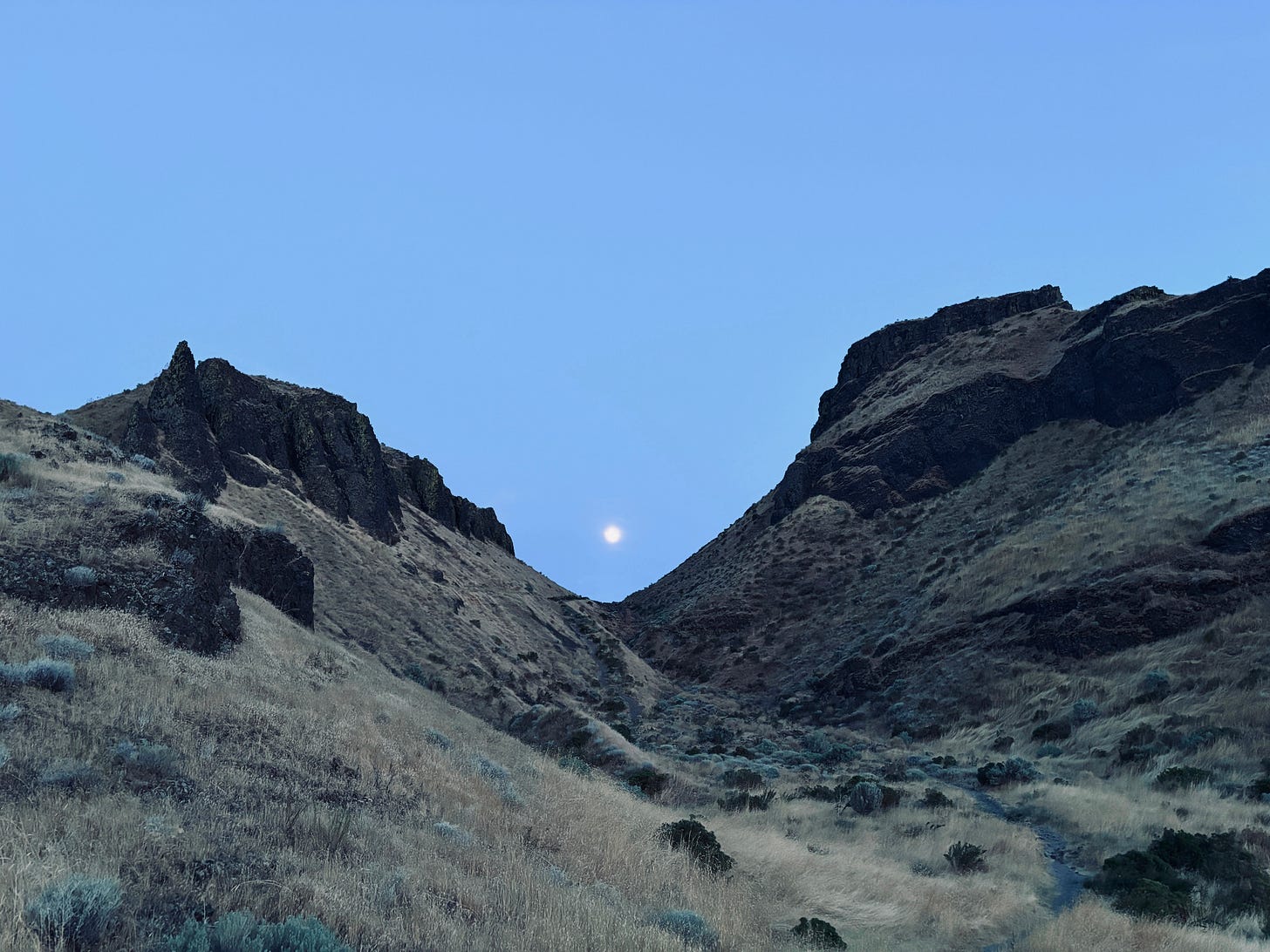I Came as I Was
Some Dispatches from the Pacific Northwest
Aberdeen
Visiting the Olympic Peninsula has never been an innocent pleasure. Its gateway city, Aberdeen, lies in a moribund slumber at the mouth of the Chehalis River. A layer of marine grime, sooty grey, coats the commercial buildings downtown, whether they’re vacant or occupied. Baskets of petunias—supplied by a volunteer force of lady retirees—hang from light poles along the main thoroughfares, a disjointed motley where gray skies, gray sea, and gray habitation merge into a single, unified field.
Aberdeen is best known as the birthplace of the band Nirvana. A Kurt Cobain “Memorabilia and Info Center” advertised itself with a child-sized mannequin of the bandleader. It wore a Santa hat and carried a blow-up toy replica of Cobain’s trademark Fender Jaguar guitar. The streets were quiet, hushed, as if the perennial layer of marine clouds were a dome from which all the oxygen had been evacuated. My fiancé and I were the lone pedestrians there on a Sunday afternoon.
Along US-101, it’s possible to see tract houses and 5-over-1 condominium buildings in their embryonic form, as logs stacked along the quayside, and, for sixty miles, between Aberdeen and Olympic National Park, a patchwork of clearcuts and timber monoculture—what is termed “working forest” by the lumber industry—greets the affluent vacation-goer from Seattle or Portland or other points more distant.
Whether they’re preserved in Olympic National Park or just grown in someone’s yard, the native trees do make a vivid impression, even when you’ve only been away for a few months. A mature Sitka spruce dwarfs any building around Aberdeen, the equivalent of 13 stories or taller. The economic circumstances make a lasting impression as well. A German friend of mine once said to me: “I thought America was a very wealthy place. But after visiting, I don’t think this anymore.”
Stink Finger
It was only three years ago that Klickitat County, a rural county on the northern banks of the Columbia River, lost a land claim against the Confederated Tribes and Bands of the Yakama Nation, settling a property dispute that had lasted for over a century. We—my fiancé and I—saw the practical outcome of that ruling as we walked a former railroad grade along the Klickitat River, a smaller tributary of the Columbia, and encountered the wooden platforms and dip nets, equipment that the tribes have used to fish salmon for thousands of years, scattered about the sheer riverbank.
Those not from the Pacific Northwest are often surprised to hear about its dry inland landscape, savannah running into high desert plateaus, which dominates east of the Cascade Mountains. Walking along the railroad grade, that dryness—metastasizing into perennial drought—was well in evidence. Talking robbed the spit from your mouth. A recent wildfire had burned through the valley, formed a series of blackened in the grass and scrub oak, like scabs abraded in a child’s knee, blackened patches running clear down to the river, which, nevertheless, still flowed cold and swift through its stony watercourse. The sun seemed to inch closer and closer overhead.
A maze of dirt paths, of improvised steps and ladders, took you down from the railroad grade to the Indian fishing platforms. Like the ladders themselves, the platforms consisted of scrap plywood and framing timber, nailed or simply lashed together, though not haphazard, not in anything but the most immediate sense of the word, since the fishing grounds form part of a continuous material culture older than the pyramids.
Coming up the railroad grade, we passed an RV with the words “Stink Finger” spray-painted in electric orange and green. Coming down, we met a man, presumably a member of the Klickitat tribe, cleaning garbage—loose plastic bags and wads of paper towel—from around “Stink Finger.” He waved at us. We waved back. We talked about the fishing. It was bad but not catastrophic—steelhead mostly. The fire had knocked down some trees, slowing the river. We wished each other well, him with his fishing and us with our travels. It was a civilized exchange. Such conversations, adjusting for temporal particularities, predate the founding of the United States and might, with any luck, postdate it as well.


